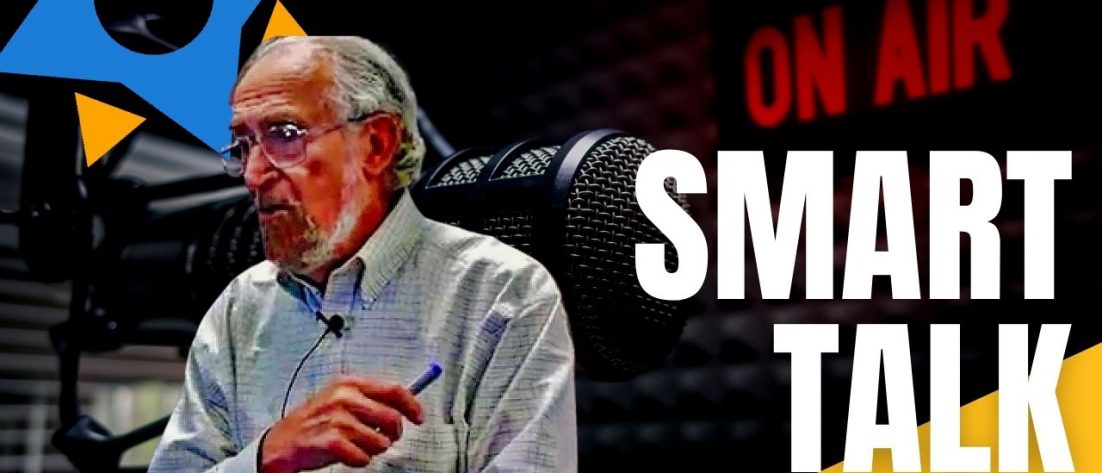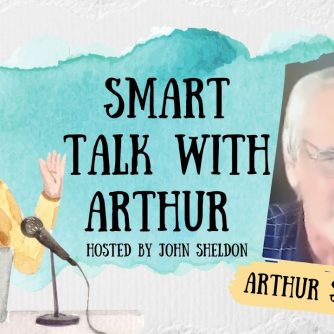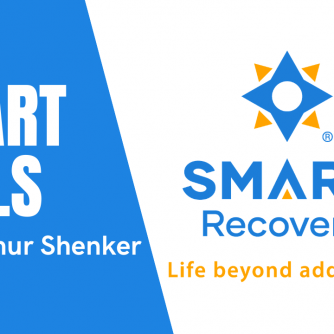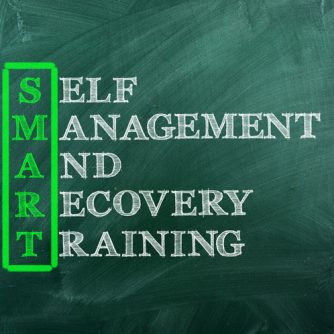Welcome to SMART Talk! In this episode Arthur and I spoke with Joe Gerstein, founding President and a current Board Member for SMART Recovery. Joe has facilitated SMART Recovery meetings since its inception. He has developed many of the tools in the SMART toolbox and he helped start SMART meetings in several countries around the world.
The Basics of SMART Recovery
SMART is an acronym for Self-Management Addiction Recovery Training or Self-Management And Recovery Training. It is an evidence-based program with two precepts; the tools of which there are fourteen, and mutual support from peers. There is also a program to help people who want to support a loved one who is struggling with addiction known as SMART Family and Friends.
Over the last five years, SMART can make the claim that it is evidence-based because there have been specific studies on SMART Recovery that demonstrate its efficacy, and today SMART is a well-established mutual aid group. It is a non-profit organization with seventeen employees, and SMART meetings are free, supported by voluntary contributions from the people who attend the meetings.
Of the seven top-rated mental health hospitals that were rated by “US News & World Report”, five of them host SMART meetings, and one of the facilities has their patients participate in SMART meetings while in treatment.
Because it is evidence-based and relies on tools from Cognitive Behavioral Therapy, it is important that SMART meeting facilitators be trained. As of today, SMART has trained some 12,000 facilitators. Two-thirds of those who take the training are professionals and the other third are peers. SMART has a handbook that is now in its third edition and is published in thirteen different languages.
The History of SMART Recovery
SMART began as Rational Recovery, which was started by Jack Trimpey, a social worker who wasn’t being helped by the Twelve Steps, so he went to the REBT Institute in New York that was run by Albert Ellis, the developer of Rational Emotive Behavioral Therapy (REBT). REBT tools helped Jack recover from problematic drinking, so he decided to start a recovery program based on REBT that he called “Rational Recovery”.
Dr. Gerstein got involved with Rational Recovery because many of his patients were turned off by the Twelve Steps to the point, they simply wouldn’t attend Twelve-Step Meetings. After about six weeks, Joe realized that this program would change the world of recovery, and he has been part of SMART ever since.
SMART Adapts and Evolves
SMART has always been a partnership between professionals and laypeople. The first board had nine professionals and two laypeople, and today the board has fifteen members with only three of them being professionals. Joe said that it’s important to have this partnership because SMART needs to know the latest in science, so it can change as new information becomes available.
Joe thinks the newest developments in science will be the efficacy of medications to treat addiction and the proven benefits of meditation. He made it clear that SMART meetings aren’t therapy sessions, and no advice is given. Instead, motivational interviewing is used to help people make their own decisions. This is fundamental to SMART Recovery, and according to Joe, it is “part of the ethos of SMART.” Along with motivational interviewing, the facilitator must also practice empathetic and active listening because language can be imprecise and it’s important to ensure that people are understood.
The Hierarchy of Values Tool
Joe adapted Abraham Maslow’s Hierarchy of Needs into the Hierarchy of Values. He got the idea when a person was coming to his meetings for about six weeks, who couldn’t become motivated to change. Joe sensed that others in the meeting were becoming uncomfortable with this person’s reluctance, so he decided that he needed to intervene.
Joe walked over to the whiteboard in the meeting room, and he wrote on the board “Hierarchy of Values.” He then asked the person to list what they most value in life. The person listed family, health, and trips to Italy. When Joe asked where alcohol fit into the hierarchy, the person didn’t think it fit anywhere at all. However, the next week, after having time to think about it, this person realized that their drinking was in direct conflict with every other value, and this helped them find the motivation to change.
Links
Our Sponsor
Podcast: Play in new window | Download



